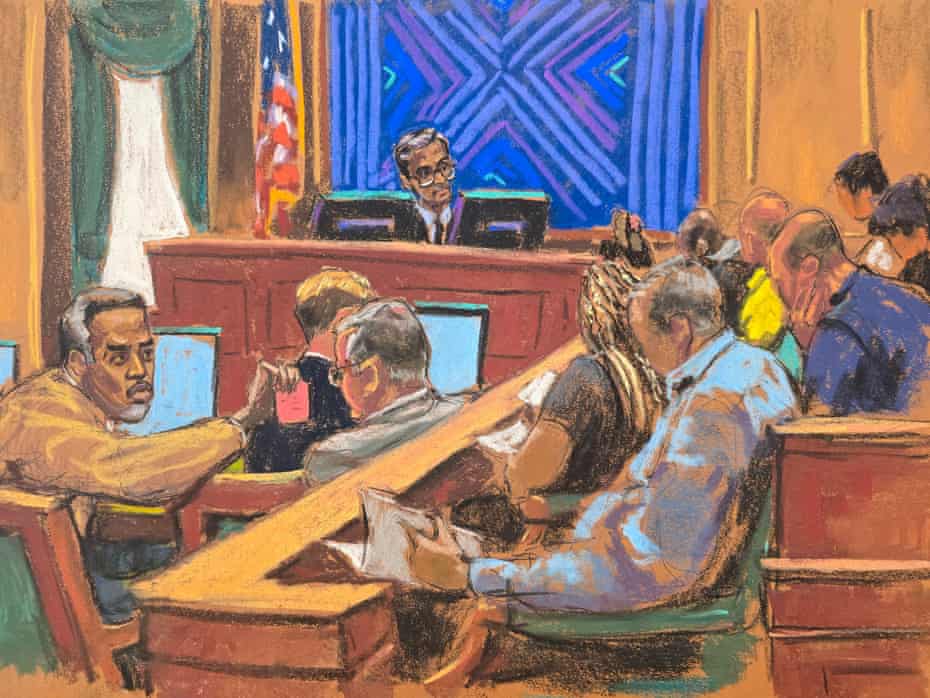The jury in the high-profile federal trial of music mogul Sean “Diddy” Combs ended a second day of deliberations on Tuesday without reaching a verdict on one of the five charges he faces, prompting the judge to urge them to continue their efforts.
After more than 13 hours of deliberation across two days, the 12-member panel, comprised of eight men and four women, informed the court that they had come to a decision on four of the counts. However, they remained divided on the racketeering conspiracy charge, with some jurors reportedly holding “unpersuadable views”.
US District Judge Arun Subramanian, presiding over the case, instructed the jury to “keep deliberating”, adding, “If you decide you are done for the day, send me another note and I’ll bring you back out to end the day.” Shortly after 5 pm, the jurors sent a final note stating they were adjourning and would resume deliberations on Wednesday morning.
Combs, 55, was arrested in September and stands accused of five felony charges: one count of racketeering conspiracy, two counts of sex trafficking, and two counts of transportation to engage in prostitution. He has pleaded not guilty to all charges and denies any wrongdoing.
If convicted, Combs could face a life sentence.
Jurors have expressed particular difficulty with the racketeering charge, which requires them to determine not only whether Combs oversaw a criminal enterprise, but also whether he committed or facilitated crimes such as kidnapping and arson. The charge is considered the most complex of the five.
Deliberations began on Monday following closing arguments and comprehensive instructions from Judge Subramanian. However, just an hour into discussions, the jury submitted a note raising concerns about Juror 25, who was allegedly struggling to follow the judge’s legal instructions. In response, the judge reminded all jurors of their duty to deliberate and adhere strictly to the law and instructed them not to include details of their discussions in future notes.
Jury demands clarity of drug distribution
On Tuesday, the jury sent several more notes, including a request for clarification on the definition of drug distribution. The judge pointed them to a passage in the charging document, which defined distribution as including “actual, constructive, or attempted transfer” and clarified that “distribution does not require a sale”.
Later in the morning, jurors requested transcripts of testimony from two key witnesses: singer Casandra “Cassie” Ventura, one of Combs’s former girlfriends and the prosecution’s central witness, and Daniel Phillip, who claimed he was hired to participate in so-called “freak-offs” allegedly orchestrated by Combs.
The trial, which began on 12 May, featured testimony from 34 witnesses, including former girlfriends, employees, male escorts, stylists, hotel staff, law enforcement officers, and celebrities such as rapper Kid Cudi and singer Dawn Richard.
Prosecutors have painted a disturbing portrait of Combs as the ringleader of a criminal enterprise that used intimidation, violence, and power to coerce women into sex acts and to silence witnesses. The charges span a broad range of alleged criminal activity over two decades, including sex trafficking, forced labour, drug distribution, arson, and obstruction of justice.
The defence has strongly refuted the claims, maintaining that all sexual activities were consensual and part of a “swingers lifestyle”. While acknowledging past instances of domestic violence, Combs’s legal team has denied any acts of coercion or sex trafficking, arguing instead that the case is an unfair prosecution of his private life.
With the jury deadlocked on the racketeering count, discussions are expected to resume on Wednesday, as both the prosecution and defence resist declaring a mistrial and hope for a full verdict.



